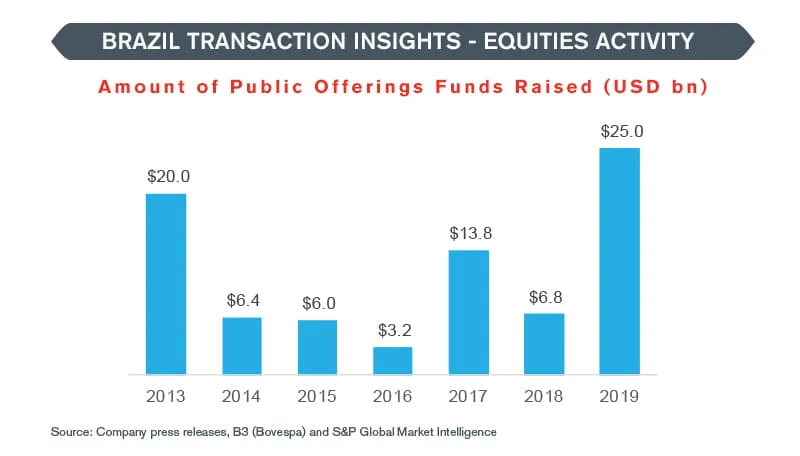Since the inauguration of President Jair Bolsonaro in January 2019, a trend of cautious optimism has swept over the Brazilian business community. Following the guidance of the Minister of Economy, Paulo Guedes, the new government has implemented substantial reforms and actions that led the country to end 2019 in much better conditions than prior years.
Bolsonaro’s first year of presidency was marked by the approval of pension and social security reform, which may bolster the fiscal health of the country. Approval of other reforms (tax and administrative) and further actions of the government for sweeping deregulation and privatization will continue to foster new investments after years of sluggish economic growth.

Interest rates towards the end of 2019 were at a historical low level of 4.5%, driving resources to capital markets. The B3/IBOVESPA index reached an all-time record high (118k points) in January 2020, reflecting investors’ increasing confidence in the country. Brazil’s Credit Default Swap (CDS) are below 100 basis points (a risk rate lower than when the country was investment grade rating in 2008). Brazil will likely witness more international resources in 2020, boosting the capital markets and M&A activity.
Brazil is currently boasting a healthy balance of external accounts, stabilized inflation and working for having a steady fiscal situation. Market expectations are for a +2% GDP growth in 2020.





